Photo: ROBYN BECK/AFP via Getty Images
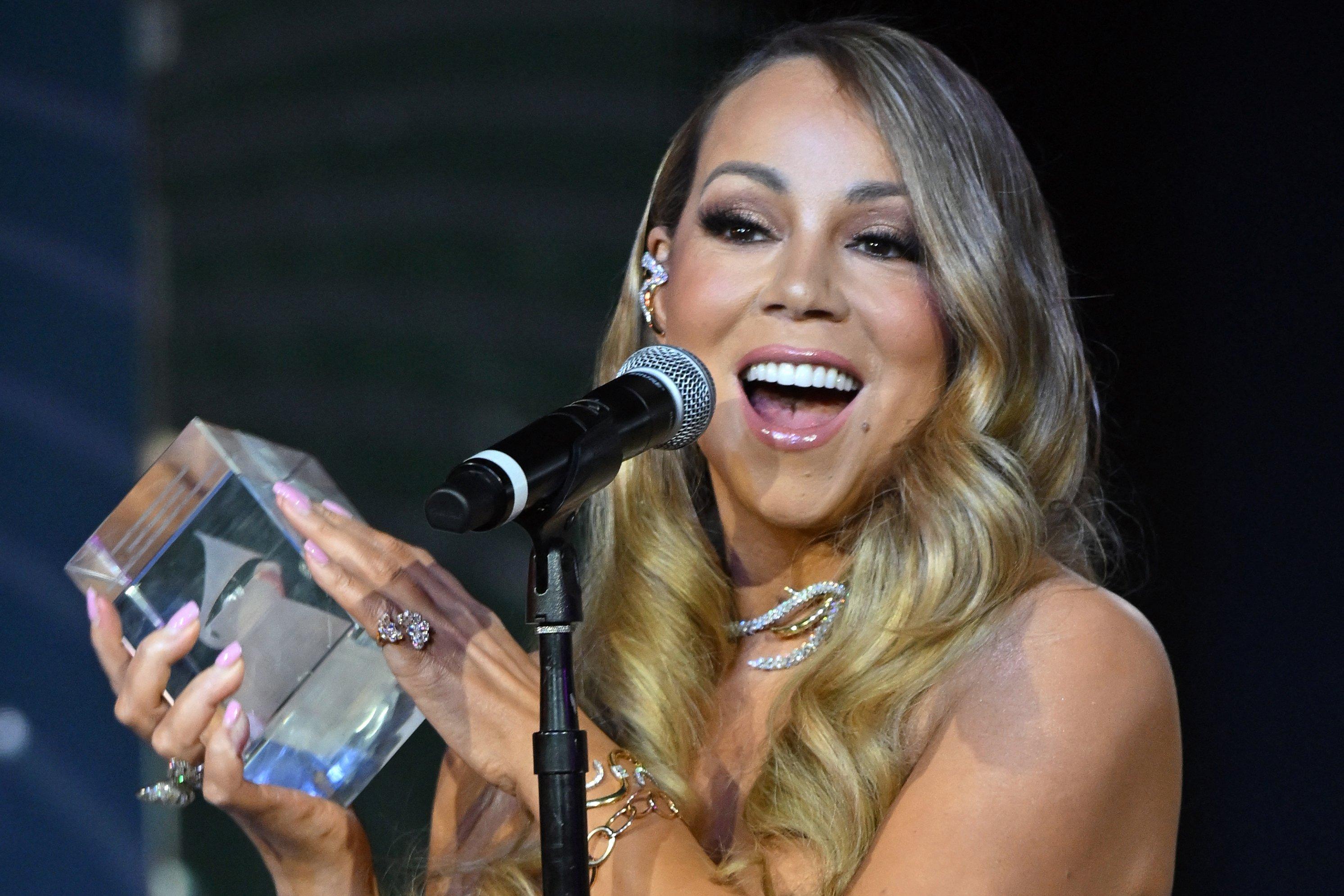
news
Here's What Happened At The Black Music Collective’s Recording Academy Honors 2024 GRAMMY Event Celebrating Mariah Carey & Lenny Kravitz
The power of staying true to yourself was at the center of the 2024 GRAMMY Week event. Honorees Mariah Carey and Lenny Kravitz were lauded by colleagues and performers, including Stevie Wonder, Quavo, Babyface and Andra Day.
On a wet but buzzing Thursday evening ahead of the 2024 GRAMMYs, leading lights in the music industry gathered for the third annual Recording Academy Honors Presented By The Black Music Collective. Along the event's black carpet, stars and industry insiders were showing out — taking photos, reconnecting with friends and collaborators, and chatting with the press.
The official 2024 GRAMMY Week event was held Feb. 1 — the first day of Black History Month — at the Fairmont Century Plaza in Los Angeles and was sponsored by Amazon Music and City National Bank. Each year, BMC presents its Global Impact Award to legendary musicians advancing the culture, and 2024’s honorees Lenny Kravitz and Mariah Carey, loomed over the entire evening before they'd even arrived.
Flava Flav, sporting his patented clock necklace, was also hyped about the evening. "It means everything to be at the GRAMMYs tonight. This is big," Flav told GRAMMY.com. The rapper then spoke about the two transcendent stars being honored. "I feel real big about the honorees. Mariah Carey, always been proud of her and I love her songs…Lenny Kravitz is my dude. That’s my man. So congratulations Lenny!"
The significance of the event was felt from the first foot set on the black carpet. Afrobeats star Fireboy DML weighed in on the importance of the night. "I’m honored. It feels good. It’s always important to be in spaces like this," Fireboy told GRAMMY.com, adding that he's excited about his upcoming fourth album. "It’s important for the culture."
As attendees inside the jam-packed ballroom room eagerly awaited the main guests of the night, Recording Academy CEO Harvey Mason Jr. spoke about the momentum being built through Black Music Collective.
"[Last year] I spoke how great it was to be holding the second annual BMC event. To me it meant we established a new tradition. And now the tradition proudly continues," Mason Jr. told the audience, emphasizing how the influence of Black culture can be found in all corners of the world and across musical genres.
A performance by Nigerian superstar Davido, a first-time GRAMMY nominee, spoke to the power of musical diversity in the Academy and BMC. Although the crowd had sat down with their appetizers, many stood up to vibe out as Davido performed his nominated song, "Unavailable."
By the time Andra Day, adorned in a bright red leather coat, got to the end of her rendition of "Strange Fruit" with support from trumpeter Keyon Harrold, everyone in the ballroom was on their feet. It was a great moment for Day, whose cover of Billie Holiday’s 1939 cry for justice hammered home the connection between Black artists across different genres and across time.
Gabby Samone garnered the second standing ovation of the night for her take on Nina Simone’s "Four Women." Simone has had a number of major cosigns as her star has grown brighter, and her fans include Jennifer Hudson and none other than Mariah Carey. Samone's performance was followed by a powerful song from Erica Campbell, whose I Love You is nominated for Best Gospel Album this year.
A set from DJ Mannie Fresh, Kravitz took the stage to receive the first BMC Global Impact Award of the night. Introduced by mentee H.E.R, she talked about "American Woman’s" genre-bending influence on her own career and Kravitz's own influence from childhood. "The fashion, the confidence, the badass walk, and the killer vocals made me at six years old say to my dad ‘I wanna play guitar.’ ‘I wanna be a rockstar.’ ‘I wanna be like Lenny Kravitz,’" H.E.R. said.
She then listed off some of Kravitz’s other accomplishments including working on "Rustin," the new Netflix film about critical civil rights architect Bayard Rustin, as well as Kravitz’s work in philanthropy through his Let Love Rule Foundation.
Once the din died down, Kravitz took a trip back to childhood, too. He shared how, when he went to go see the Jackson 5 with his family, and was so hooked that he dreamed of becoming part of the storied troupe. "I fantasized that I was their long lost brother and turned the Jackson 5 into the Jackson 6," he said.
Kravitz also spoke the various genres of music that helped mold him, drawn from many different corners. From his "grandfather’s block in Bed-Stuy, Brooklyn," where he "witnessed the birth of hip-hop," to being shaped by legends like Jimi Hendrix, Marvin Gaye and Nina Simone. He also shouted out his godmother, the late great actress Cicely Tyson.
In a particularly cool mashup of genre and generation, Quavo provided vocals to "Fly Away," flanked by P-funk all star George Clinton, Earth, Wind & Fire bassist Verdine White, and Red Hot Chili Peppers drummer Chad Smith. At the end of the performance, Kravitz went over to each performer and hugged them.
After a brief intermission, record producer and BMC Chair Rico Love shouted out leadership, including the Recording Academy board of trustees and Ryan Butler, Vice President of DEI. Love spoke about Black Music Collective as a space where everyone can feel at home. "The life of a creator is so hard. And lonely. That’s why it’s valuable to build community," he emphasized.
Black Music Collective’s scholarship program, in collaboration with Amazon Music, Love said, will once again support HBCU students who aspire to be in the next generation of music industry power players. In 2023, scholarships were awarded to students at Florida A&M University, Texas Southern University, Norfolk State University, among others. Love recalls the mentors he had when he was coming up and is glad BMC is also paying it forward.
Last night’s program found one of the few people on the planet that even Mariah Carey might be star struck by. Before the pop legend received her Global Impact Award, Stevie Wonder appeared and sat down over a keyboard.
"Very excited to be here to celebrate someone that has been a friend and I’ve been a fan of since the very beginning of hearing her voice," he said, before serenading Carey with "I Just Called to Say I Love You," ending the rendition with "I love you, I love you, you are my hero."
Mariah Carey was seemingly surprised and star-struck herself. Once she overcame the awe, Carey detailed the pressure she faced early in her career to avoid leaning into Black music. "When I first started in the music business, I was often told to ‘conform’ to certain expectations. I was not encouraged to focus on my love for Black music," she told the crowd.
Later, some of Carey’s other friends and collaborators performed, including Babyface, who once sang backing vocals on Carey’s "Melt Away." (Carey then returned the favor by singing on "Every Time I Close My Eyes.") Another Carey collaborator, Busta Rhymes, performed crowd favorite "I Know What You Want" and offered sincere thanks to Carey for her boldness and desire to "run with the wolves." Tori Kelly also sang "Vision of Love" during this segment and earlier in the night, gospel legend Yolanda Adams performed "Make It Happen." The third annual Recording Academy Honors/BMC event certainly did make it happen, as attendees flooded out of the ballroom and into the streets pumped with pride.
2024 GRAMMYs: See The Full Nominees And Winners List
Head to live.GRAMMY.com all year long to watch all the GRAMMY performances, acceptance speeches, the GRAMMY Live From The Red Carpet livestream special, the full Premiere Ceremony livestream, and even more exclusive, never-before-seen content from the 2024 GRAMMYs.
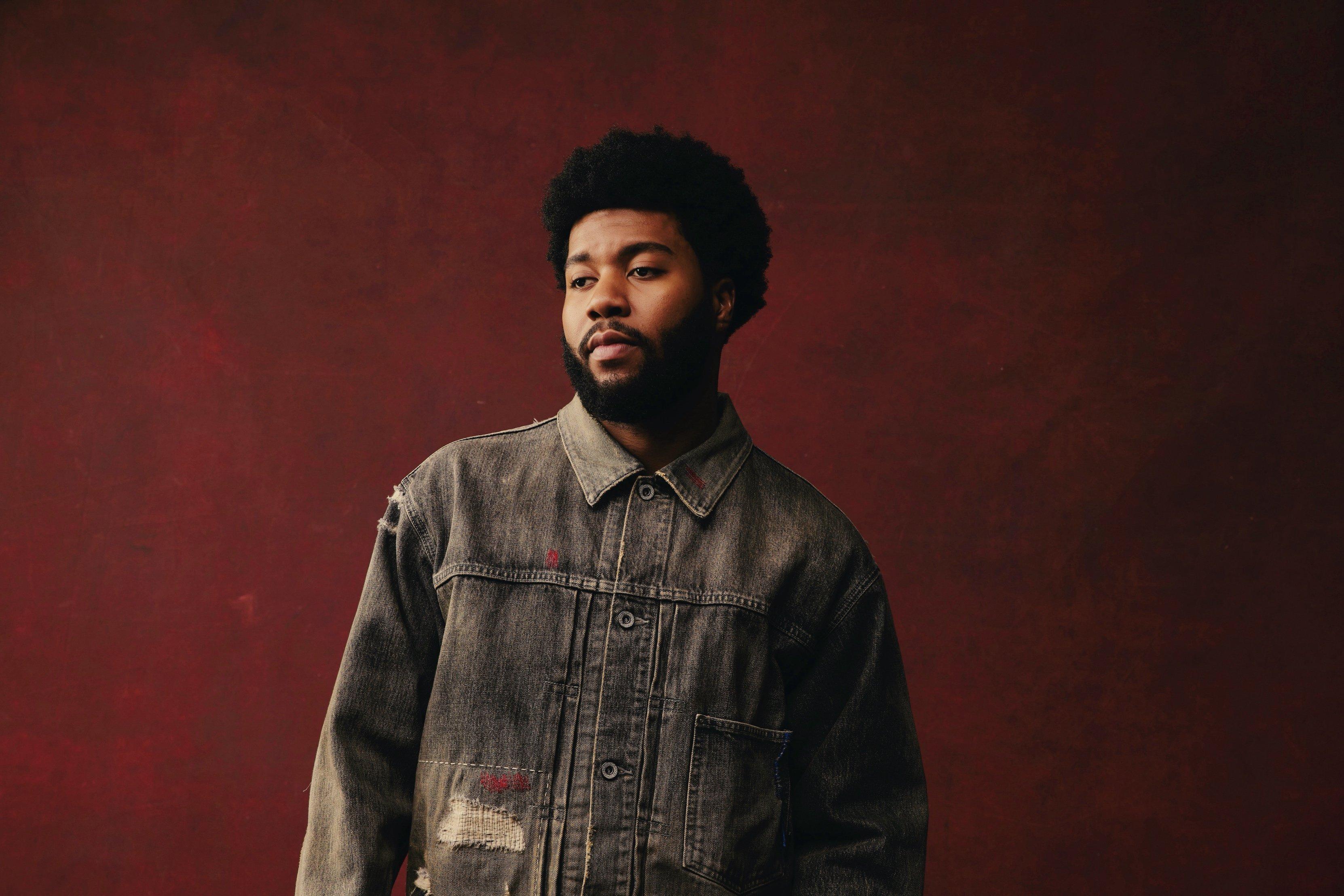
Photo: ro.lexx
news
New Music Friday: Listen To New Songs From Khalid, Mariah Carey, NAYEON, And More
From reworked classics to new fresh tunes, take a listen to some of the most exciting tracks that dropped on June 14.
Those pre-summer Fridays just keep rolling on. With each release day, the music community fills our hard drives, playlists and record shelves with more aural goodness.
Granted, to wrangle it all in one place is impossible — but GRAMMY.com can provide a healthy cross-section of what's out there. From here, venture forth into new releases by Luke Combs (Fathers & Sons), Normani (Dopamine), Moneybagg Yo (Speak Now), Jelly Roll ("I Am Not Okay"), and more.
For now, here are nine new songs or albums to explore.
Khalid — "Adore U"
After previously released single "Please Don't Fall in Love With Me," Khalid is back with another luminous ode to romantic disconnection, where he calls for healing amid broken ties.
"Thousand miles apart and you're still in my heart/ Can we take it back?" Khalid pleads in the hook. "I'm waiting at the start/ Fly me to the moon and now I'm seeing stars when we touch."
Khalid hasn't released a full-length album since 2019's Free Spirit. But he's been teasing a new project for a minute: two weeks ago, he shared an Instagram carousel with the caption "5 years later. Here we go again." And the yearning "Adore U" certainly sets the tone for what's to come in Khalid's world.
NAYEON — 'NA'
TWICE's NAYEON is shifting gears towards her highly anticipated solo comeback with the release of NA, a project that spans pop, dance, and more. The follow-up to her debut solo album, 2022's IM NAYEON, NA provides a glimpse into the TWICE member's transition from being daunted by a solo career to finding comfort in the act.
One highlight is the shimmering "Butterflies," which NAYEON described to Rolling Stone as "one of my favorite songs" yet "one of the harder ones to record, actually." Another is the brassy "Magic," which she calls "a very self-confident song." All in all, NA winningly cements NAYEON's identity — irrespective of her main gig.
Mariah Carey — 'Rainbow: 25th Anniversary Extended Edition'
In light of its 25-year anniversary, Mariah Carey revisits her iconic 1999 album, Rainbow, which featured collaborations with fellow household names like Jay-Z, USHER, and Missy Elliott. The new anniversary edition boasts a plethora of remastered and remixed tracks — a treasure trove for Carey acolytes.
One new track is "Rainbow's End," produced by David Morales; Carey described it as "a hopeful ending to an emotional roller-coaster ride." Elsewhere, there's "There For Me," a love letter to her fans that didn't make the album; a new remix of "How Much" by Jermaine Dupri, and some intriguing live recordings and a cappella tracks.
$UICIDEBOY$ — 'New World Depression'
Since at least their debut album, 2018's I Want to Die in New Orleans, rap duo $UICIDEBOY$ have expertly cataloged the bugs beneath the rock of the human experience: addiction, depression, the whole nine yards. New World Depression is a further distillation of their beautifully filthy aesthetic and worldview.
In highlights like "Misery in Waking Hours" and "Transgressions," MCs $crim and Ruby da Cherry's chroniclings of misery are barer than ever: "Hurts too much to give a f— / Demoralized, always lying, telling people I'll be fine," they rap. Who hasn't felt like this, at one point or another?
John Cale — 'POPtical Illusion'
At 82, Velvet Underground violist, multi-instrumentalist and co-founder John Cale is still a tinkerer, a ponderer, an artist in flux rather than stasis. In 2023, when GRAMMY.com asked when he felt he came into his own as an improviser, he immediately replied "Last year."
That interview was centered around that year's solo album, Mercy, another gem in a solo discography full of them. Now, he's already back with a follow-up, POPtical Illusion.
While POPtical Illusion maintains its predecessors' foreboding, topical nature — and then some — tracks like "Laughing in My Sleep" and "Funkball the Brewster" couch these morose topics in a more playful, irreverent aural palette.
Tanner Adell — "Too Easy"
The Twisters soundtrack continues to be a whirlwind of great tunes. The latest dispatch is Tanner Adell's "Too Easy," a country-pop dance floor banger — its video even featuring a performance by dance troupe the PBR Nashville Buckle Bunnies.
"Too Easy" is the fourth song to be released from the Twisters soundtrack, following Tucker Wetmore's "Already Had It," Megan Moroney's "Never Left Me," Bailey Zimmerman's "Hell or High Water," and Luke Combs' "Ain't No Love in Oklahoma." The full album — which features a hoard of country stars, including Lainey Wilson, Thomas Rhett, Tyler Childers and more — will be available on July 19 when the movie hits theaters.
Stonebwoy — "Your Body"
We've clearly caught Ghanian Afropop star Stonebwoy in a jubilant mood. In a teaser for his new song, "Your Body," the singer born Livingstone Satekia undulates on a saturated, red-and-blue backdrop, foreshadowing the sticky summer days we'll spend jamming the tune.
And the full song certainly doesn't disappoint. Interweaving strains of pop, R&B and reggae, with Stonebwoy deftly switching between singing and rapping, "Your Body" will get your body moving.
Toosii — "Where You Been"
Rapper Toosii last teased his upcoming eighth mixtape, JADED, with "Suffice," its lead single released back in November. In the interim, he's been "locked in perfecting a new look a new sound new everything!" as he shared in an Instagram reel. "I just hope you're ready," he added with star and smile emojis.
Said teaser pointed toward a melancholic, weighty ballad, which ended up being the next release from JADED, "Where You Been." Riding a multidimensional, brain-flipping beat, the song is an immersive, thoughtful banger not to be missed.
Victoria Monét — "Power of Two" (from 'The Acolyte')
The latest Star Wars show on Disney+, "The Acolyte," is getting rave reviews — and three-time GRAMMY winner Victoria Monét is now part of its musical universe. She's contributed an original song, "Power of Two," to the end credits of the Lucasfilm series.
Over an ethereal, melancholic beat, the lyrics detail emotions ripe for either terra firma or a galaxy far, far away: "You thought your soul was a necklace/ That you could wear and take off/ That you could rip and break off/ That you could trade in the dark/ But you're mine."
Bring these killer tunes straight into your weekend — and keep checking GRAMMY.com for more brand-new New Music Friday lists!
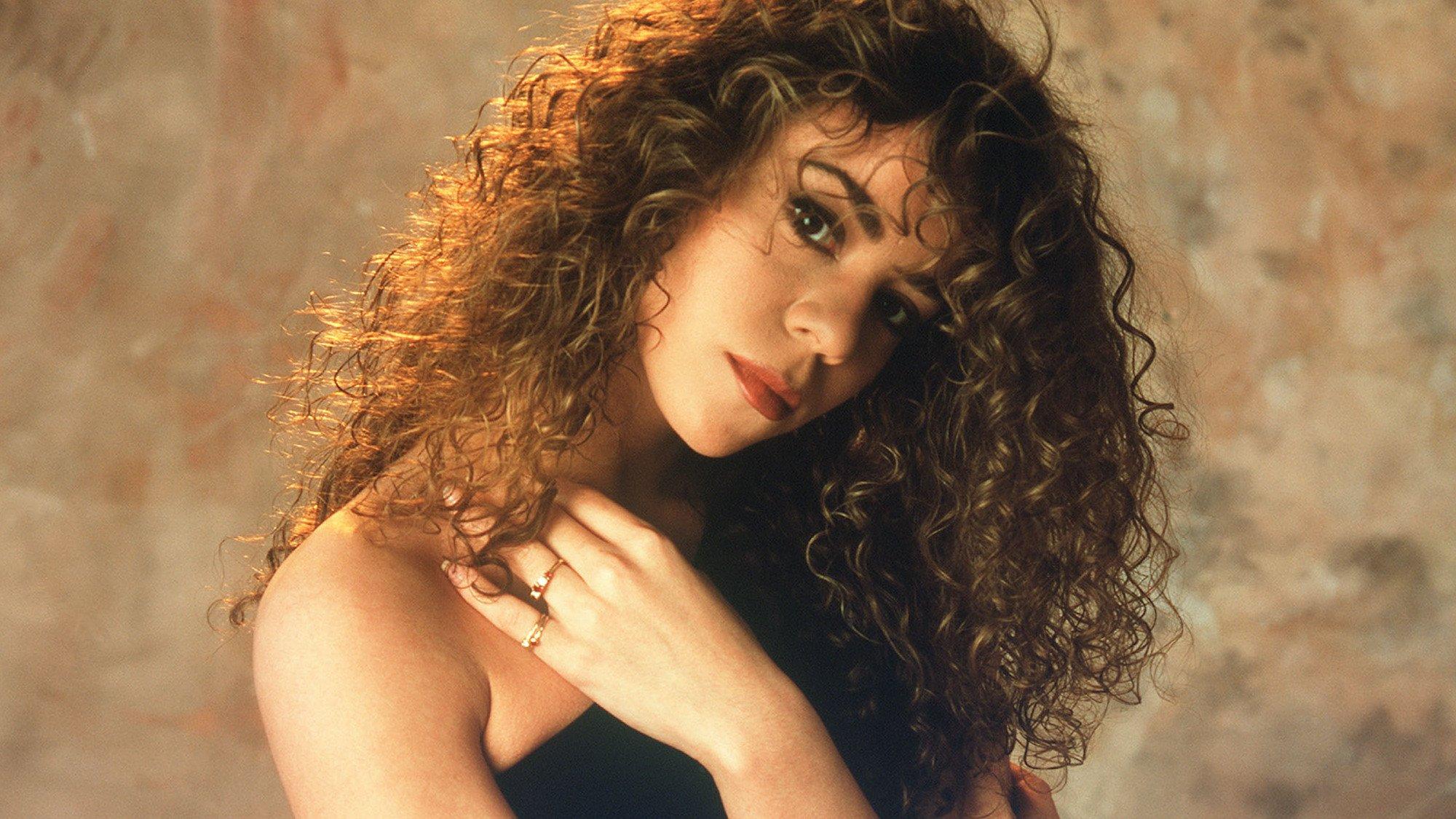
Photo: Frank Micelotta
news
On This Day In Music: Mariah Carey Releases Her Self-Titled Debut Album
Released June 12, 1990, Mariah Carey's iconic debut spent 11 weeks atop the Billboard 200. Revisit the impressive — and GRAMMY-winning — album, which started it all for one of music's great divas.
Years before she was dubbed the "Queen of Christmas" or became the recipient of the Recording Academy's Global Impact Award, Mariah Carey was making a name for herself with R&B earworms and impressive vocal range.
Released 34 years ago today, the New-York native's self-titled debut album featured a tasteful mix of slower, emotional ballads and upbeat anthems. Mariah Carey's lead single, "Vision of Love," offered listeners a first taste of her infamous whistle register and incredible range — it also caught the ear of Academy voters.
Carey was nominated in five categories at the 1991 GRAMMYs, and took home golden gramophones for Best New Artist and Best Pop Vocal Performance, Female. The album broke chart records, established Carey as a household name, and ultimately paved the way for her illustrious career.
"It seems like everything I did in the first year that I came out with my first album is like a blur because everything happened so fast for me and I never had the chance to sit down and go 'Wow, this is actually happening,'" Carey recalled in an interview with MTV. "I just, like, went straight ahead."
The success of Mariah Carey was a mix of fate, talent and perseverance. In 1988, a teenage Carey left her family home in Long Island to pursue a music career. She brought with her a four-song demo tape made during her high school years with songwriter/producer Ben Marguiles (who also co-wrote Mariah Carey with several other writers). She continued to shape up the demo tape as she worked multiple jobs, and eventually crossed paths with Latin GRAMMY winner Brenda K. Starr.
Carey found herself singing back-up vocals for the artist at live performances, and caught Starr's attention with her astonishing voice. Recognizing her exceptional talent, Starr played a pivotal role in launching Carey's career to new heights.
"I really didn't want to do it, but I said it's gotta be better than what I'm doing now," Carey confessed of the audition in Chris Nickson's book, Mariah Carey Revisited: Her Story. "So I went to the audition, and Brenda was such a great person."
Eventually, Starr brought Carey along to an industry party, where she was able to get her demo tapes into the hands of Tommy Mottola, the then-president of Columbia Records. With stars in his eyes, Mottola listened to the tape and quickly signed Carey to the label.
Upon the album's release, critics overwhelmingly praised 20-year-old Carey's vocal prowess, noting how her debut set a new standard that raised expectations for artists across various genres to follow. The New York Times noted that the release came with "more fanfare and promotional hoopla than [Columbia Records] has bestowed on a new young talent in years." The paper continued to lavish praise on Carey's "pop-gospel voice that is impressive in its power and range and that has elaborate vocal embellishments strikingly reminiscent of Whitney Houston's."
The album featured a whopping four Hot 100 chart-toppers: "Vision of Love," "Love Takes Time," "Someday," and "I Don't Wanna Cry." The album itself spent 11 weeks atop the Billboard 200 — Carey's lengthiest No. 1 to date.
Twenty-four years and 15 studio albums later, Mariah Carey transcends time. The album not only serves as representation of Carey’s unwavering determination, but a formative piece of art that jump started a truly spectacular career. While the five-time GRAMMY winner is duly given her flowers for her complex and sprawling catalog, an equal sized bouquet should be laid at the feet of her debut album, which remains a timeless paragon for R&B artists to draw inspiration from.
More Mariah Carey News & Music

Behind Ryan Tedder's Hits: Stories From The Studio With OneRepublic, Beyoncé, Taylor Swift & More

Watch Aretha Franklin Win At The 1971 GRAMMYs

5 Reasons Why 'The Writing's On The Wall' Is Destiny's Child's Defining Album
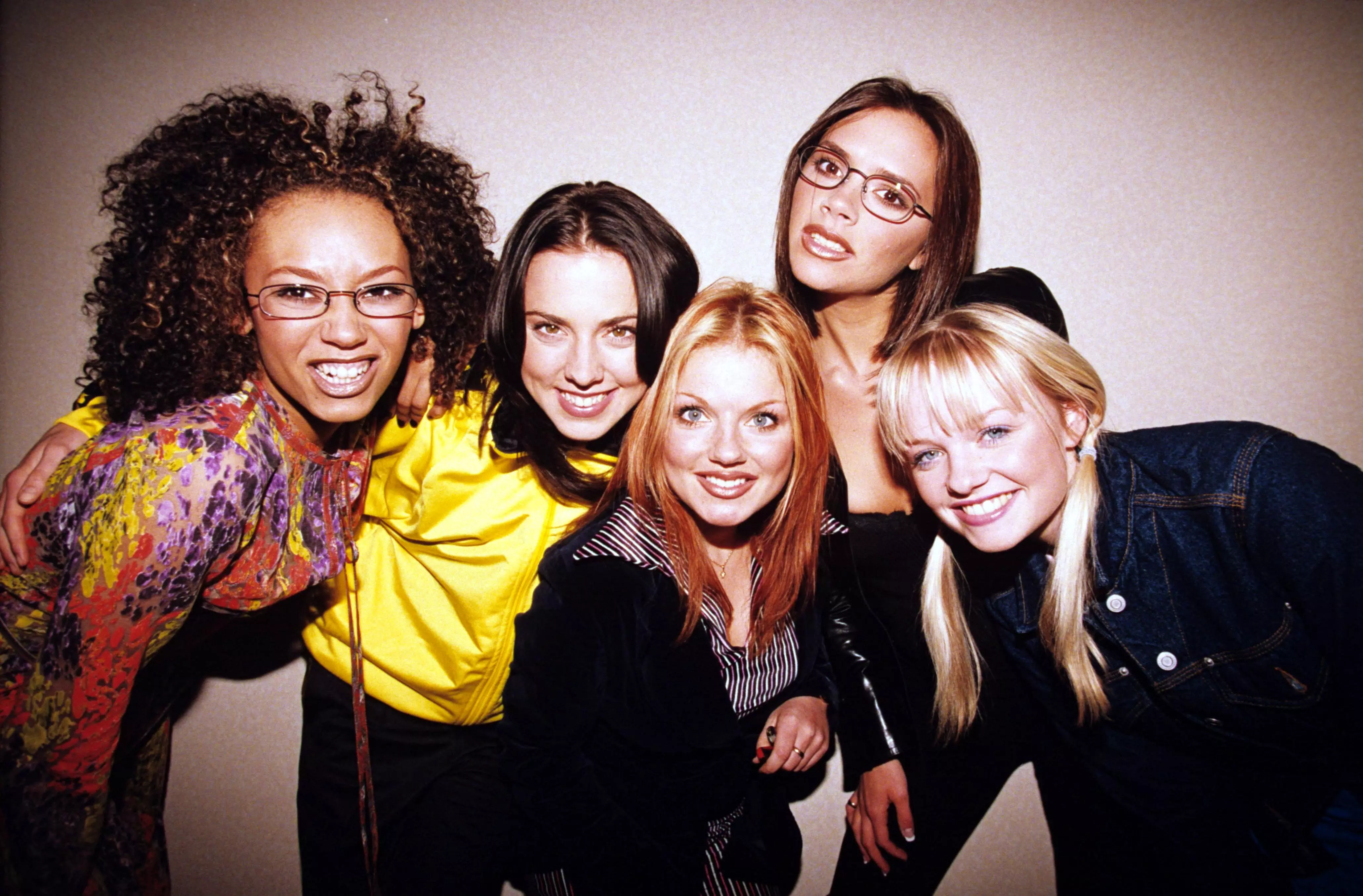
On This Day In Music: Spice Girls Release "Wannabe," Their Iconic Debut Single

Meet Scene Queen, The "Chaotic Mess" Cleaning Up The Alternative Scene

Photo: Jathan Campbell
list
How Much Is A GRAMMY Worth? 7 Facts To Know About The GRAMMY Award Trophy
Here are seven facts to know about the actual cost and worth of a GRAMMY trophy, presented once a year by the Recording Academy at the GRAMMY Awards.
Since 1959, the GRAMMY Award has been music’s most coveted honor. Each year at the annual GRAMMY Awards, GRAMMY-winning and -nominated artists are recognized for their musical excellence by their peers. Their lives are forever changed — so are their career trajectories. And when you have questions about the GRAMMYs, we have answers.
Here are seven facts to know about the value of the GRAMMY trophy.
How Much Does A GRAMMY Trophy Cost To Make?
The cost to produce a GRAMMY Award trophy, including labor and materials, is nearly $800. Bob Graves, who cast the original GRAMMY mold inside his garage in 1958, passed on his legacy to John Billings, his neighbor, in 1983. Billings, also known as "The GRAMMY Man," designed the current model in use, which debuted in 1991.
How Long Does It Take To Make A GRAMMY Trophy?
Billings and his crew work on making GRAMMY trophies throughout the year. Each GRAMMY is handmade, and each GRAMMY Award trophy takes 15 hours to produce.
Where Are The GRAMMY Trophies Made?
While Los Angeles is the headquarters of the Recording Academy and the GRAMMYs, and regularly the home of the annual GRAMMY Awards, GRAMMY trophies are produced at Billings Artworks in Ridgway, Colorado, about 800 miles away from L.A.
Is The GRAMMY Award Made Of Real Gold?
GRAMMY Awards are made of a trademarked alloy called "Grammium" — a secret zinc alloy — and are plated with 24-karat gold.
How Many GRAMMY Trophies Are Made Per Year?
Approximately 600-800 GRAMMY Award trophies are produced per year. This includes both GRAMMY Awards and Latin GRAMMY Awards for the two Academies; the number of GRAMMYs manufactured each year always depends on the number of winners and Categories we award across both award shows.
Fun fact: The two GRAMMY trophies have different-colored bases. The GRAMMY Award has a black base, while the Latin GRAMMY Award has a burgundy base.
Photos: Gabriel Bouys/AFP via Getty Images; Frederick M. Brown/Getty Images
How Much Does A GRAMMY Weigh?
The GRAMMY trophy weighs approximately 5 pounds. The trophy's height is 9-and-a-half inches. The trophy's width is nearly 6 inches by 6 inches.
What Is The True Value Of A GRAMMY?
Winning a GRAMMY, and even just being nominated for a GRAMMY, has an immeasurable positive impact on the nominated and winning artists. It opens up new career avenues, builds global awareness of artists, and ultimately solidifies a creator’s place in history. Since the GRAMMY Award is the only peer-voted award in music, this means artists are recognized, awarded and celebrated by those in their fields and industries, ultimately making the value of a GRAMMY truly priceless and immeasurable.
In an interview featured in the 2024 GRAMMYs program book, two-time GRAMMY winner Lauren Daigle spoke of the value and impact of a GRAMMY Award. "Time has passed since I got my [first] GRAMMYs, but the rooms that I am now able to sit in, with some of the most incredible writers, producers and performers on the planet, is truly the greatest gift of all."
"Once you have that credential, it's a different certification. It definitely holds weight," two-time GRAMMY winner Tariq "Black Thought" Trotter of the Roots added. "It's a huge stamp as far as branding, businesswise, achievement-wise and in every regard. What the GRAMMY means to people, fans and artists is ever-evolving."
As Billboard explains, artists will often see significant boosts in album sales and streaming numbers after winning a GRAMMY or performing on the GRAMMY stage. This is known as the "GRAMMY Effect," an industry phenomenon in which a GRAMMY accolade directly influences the music biz and the wider popular culture.
For new artists in particular, the "GRAMMY Effect" has immensely helped rising creators reach new professional heights. Samara Joy, who won the GRAMMY for Best New Artist at the 2023 GRAMMYs, saw a 989% boost in sales and a 670% increase in on-demand streams for her album Linger Awhile, which won the GRAMMY for Best Jazz Vocal Album that same night. H.E.R., a former Best New Artist nominee, saw a massive 6,771% increase in song sales for her hit “I Can’t Breathe” on the day it won the GRAMMY for Song Of The Year at the 2021 GRAMMYs, compared to the day before, Rolling Stone reports.
Throughout the decades, past Best New Artist winners have continued to dominate the music industry and charts since taking home the GRAMMY gold — and continue to do so to this day. Recently, Best New Artist winners dominated the music industry and charts in 2023: Billie Eilish (2020 winner) sold 2 million equivalent album units, Olivia Rodrigo (2022 winner) sold 2.1 million equivalent album units, and Adele (2009 winner) sold 1.3 million equivalent album units. Elsewhere, past Best New Artist winners have gone on to star in major Hollywood blockbusters (Dua Lipa); headline arena tours and sign major brand deals (Megan Thee Stallion); become LGBTIA+ icons (Sam Smith); and reach multiplatinum status (John Legend).
Most recently, several winners, nominees and performers at the 2024 GRAMMYs saw significant bumps in U.S. streams and sales: Tracy Chapman's classic, GRAMMY-winning single "Fast Car," which she performed alongside Luke Combs, returned to the Billboard Hot 100 chart for the first time since 1988, when the song was originally released, according to Billboard. Fellow icon Joni Mitchell saw her ‘60s classic “Both Sides, Now,” hit the top 10 on the Digital Song Sales chart, Billboard reports.
In addition to financial gains, artists also experience significant professional wins as a result of their GRAMMY accolades. For instance, after she won the GRAMMY for Best Reggae Album for Rapture at the 2020 GRAMMYs, Koffee signed a U.S. record deal; after his first GRAMMYs in 2014, Kendrick Lamar saw a 349% increase in his Instagram following, Billboard reports.
Visit our interactive GRAMMY Awards Journey page to learn more about the GRAMMY Awards and the voting process behind the annual ceremony.
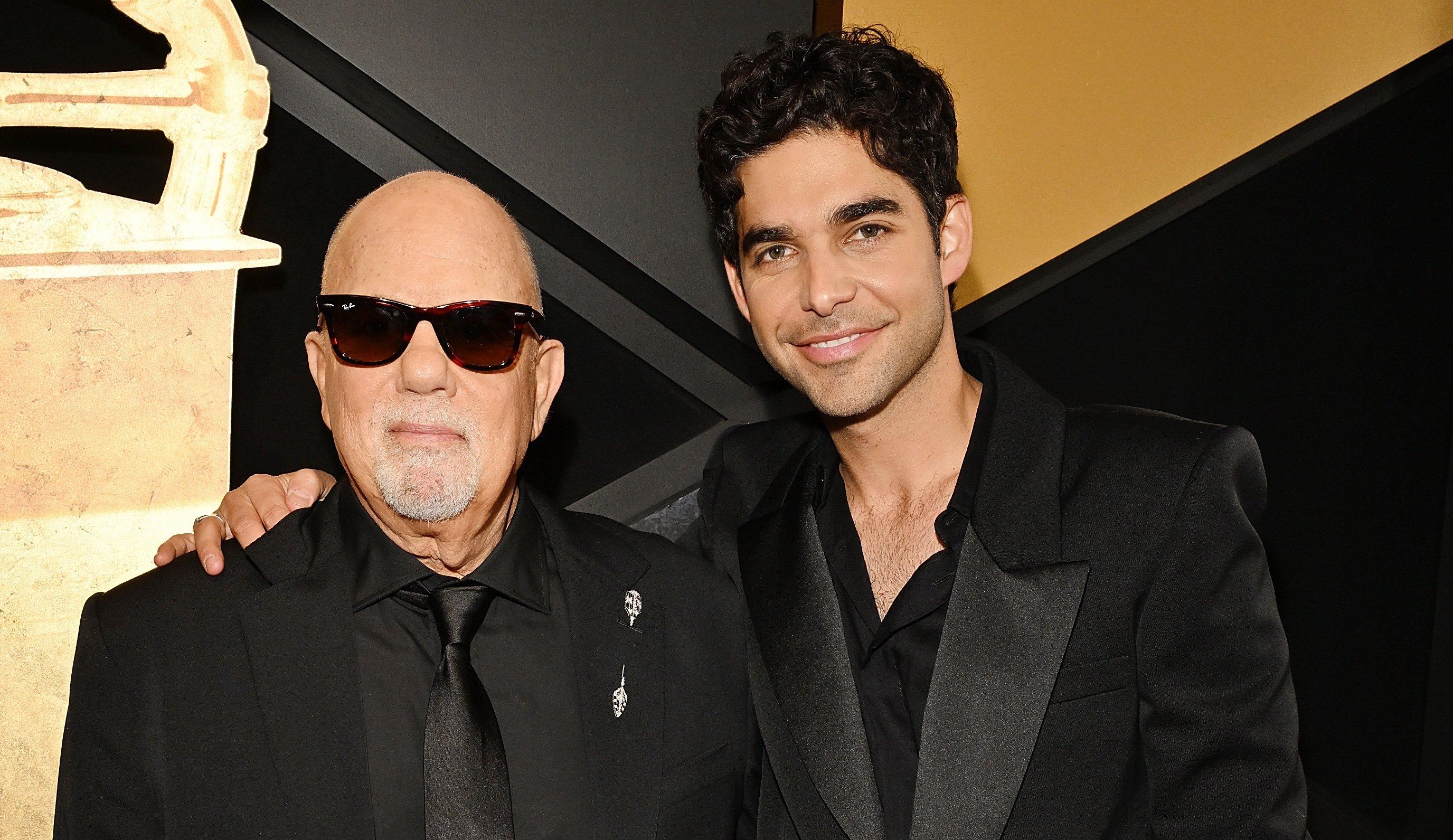
(L-R) Billy Joel, Freddy Wexler
interview
Freddy Wexler On Helping Billy Joel "Turn The Lights Back On" — At The 2024 GRAMMYs And Beyond
"Part of what was so beautiful for me to see on GRAMMY night was the respect and adoration that people of all ages and from all genres have for Billy Joel," Wexler says of Joel's 2024 GRAMMYs performance of their co-written "Turn The Lights Back On."
They say to not meet your heroes. But when Freddy Wexler — a lifelong Billy Joel fan — did just that, it was as if Joel walked straight out of his record collection.
"I think the truth is none of it is that surprising," the 37-year-old songwriter and producer tells GRAMMY.com. "That's the best part. From his music, I would've thought this is a humble, brilliant everyman who probably walks around with a very grounded perspective, and that's exactly who he is."
That groundedness made possible "Turn the Lights Back On" — the hit comeback single they co-wrote, and Wexler co-produced; Joel performed a resplendent version at the 2024 GRAMMYs with Laufey. Joel hadn't released a pop album since 1993's River of Dreams; for him to return to the throne would take an awfully demonstrative song, true to his life.
"I think it's a very raw, honest, real perspective that is true to Billy," Wexler explains. "I think it's the first time we've heard him acknowledge mistakes and regret in quite this way."
Specifically, Joel's return highlights his regret over spending three decades mostly on the bench, largely absent from the pop scene. As Joel wonders aloud in the stirring, arpeggiated chorus, "Is there still time for forgiveness?"
"Forgiveness" is a curious word. Why would the five-time GRAMMY winner and 23-time nominee possibly need to seek forgiveness? Regardless — as the song goes — he's "tryin' to find the magic/ That we lost somehow." The song's message — an attempt to recapture a lost essence — transcends Joel's personal headspace, connecting with a universal longing and nostalgia.
Read on for an interview with Wexler about the impact of "Turn the Lights Back On," why he thinks Joel took such an extended sabbatical, the prospect of more new music, and much more.
This interview has been edited for clarity.
**You did a great interview with Rolling Stone ahead of the 2024 GRAMMYs. Now, we're on the other side of it; you got to see how it went down on the telecast, and resonated with the audience and world. What was that like?**
It's why I make music — to hopefully make people feel something. This song has really resonated in such a big way. More than looking at its commercial success on the charts or on radio, which has been awesome to see, the comments on Instagram and YouTube have been the most rewarding part of it.
Why do you think it resonated? Beyond the king picking up his crown again?
I don't think the song is trying to be anything it's not. I think it's a very raw, honest, real perspective that is true to Billy. I think it's the first time we've heard him acknowledge mistakes and regret in quite this way. And to hear him do it in a hopeful way where he's asking, "Is it too late for forgiveness?" is just very moving, I think.
Forgiveness? That's interesting. What would any of us need to forgive him?
He has said in other interviews, "Sometimes people say they have no regrets at the end of their life." And he said, "I don't think that's possible. If you've lived a full life, of course you have regrets." He has said that he has many things he wishes he would've done differently. This is an opportunity to express that.
I think what's interesting about the song is it has found meaning in various ways with various people and listeners. Some people imagine Billy is singing to former lovers or friends. Other people imagine Billy is singing to his fans asking, "Did I wait too long to record again?" Other people wonder if Billy is singing to the songwriting Gods and muses. Did I wait too long to write again?
In Israel, where the song was number one — or is number one, I haven't checked today — I think the song's taken on the meaning of just wanting things to be normal, wanting hostages to come home and turn the lights back on. So, you never know where a song is going to resonate, but I think that Billy just found his own meaning with it.
You know the discography front to back. What lines can you draw from "Turn the Lights Back On" to past works?
I think it draws on various pieces of his catalog, right? "She's Always a Woman" has a sort of piano arpeggio in the chorus. To me, it feels like a natural progression. It feels like, on the one hand, it's a new song. On the other, it could have come out right after River of Dreams. To me, it just kind of feels natural.
**Back when you spoke with Rolling Stone, you said you couldn't wait to hear "Turn the Lights Back On" at Madison Square Garden. How'd it sound?**
Amazing. Billy is a consummate live performer. I think he's one of the few artists where everything is better live, and everything is always a little bit different each time it's played live.
It's been really cool to watch Billy and the band continue to change and improve the song and the song's dynamics for the show. He told me tonight that tomorrow night in Tampa, I think they're going to try to play with the key of the song, potentially — try it a half a step higher.
Those are the sort of things I think great artists do, right? It's different from being on a certain type of tour where every single song is the same, the set list is the same, the key is the same, the arrangements are the same.
With Billy, there's a lot of feeling and, "Hey, why don't we try it this way? Let's play it a little faster. Let's play it a little slower. Let's try it in a different key." I just think that's super cool. You have to be a really good musician to just do that on the fly.
What have you learned from him that applies to your music making, writ large?
I've learned so much from him. As Olivia Rodrigo said to us at GRAMMY rehearsals, "He's the blueprint when it comes to songwriting."
He has helped raise the bar for me when it comes to melodies and lyrics, but the thing I keep coming back to is he's reminded me that even the greatest artists and songwriters ever sometimes forget how great they are. I think we need to be careful not to give that inner voice and inner critic too much power.
Can you talk about how the music video came to be?
Well, I had a dream that Billy was singing the opening two lines of the song, but it was a 25-year-old version of Billy. It was arresting.
When I woke up, I sort of had the vision for the video, which was one set, an empty venue of some kind, and four Billy Joels. The Billy Joel that really exists today, but then three Billys from three iconic eras where each Billy would seamlessly pick up the song where the other left off.
The idea behind that was to sort of accentuate the question of the song — did I wait too long to turn the lights back on?
And so, to kind of take us through time and through all these years, I teamed up with an amazing co-director, Warren Fu, who's done everything from Dua Lipa to Daft Punk, and an artificial intelligence company called Deep Voodoo to make that vision possible.
What I'm driven by is the opportunity to create conversations, cultural moments, things that make people feel something. What was cool here is as scary as AI is — and I think it is scary in many ways — we were able to give an example of how you can use it in a positive way to execute a creative artistic vision that previously would've been impossible to execute.
Yeah, so I'm pleased with it and I'm thankful that Billy did a video. He didn't have to do one, but he liked the idea of it. He felt it was different, and I think he was moved by it as well.
What do you think is the next step here?
It's been a really rewarding process. And Billy is open-minded, which is really cool for an artist of that level, who's not a new artist by any stretch. To actually be described as being in a place in his life where he's open-minded, means anything is possible. I could tell you that I would love there to be more music.
I'd love to get your honest appraisal. And I know you're not him. But his last pop album was released 31 years ago. In that long interim, what do you think was going on with him, creatively?
Look, I'm not Billy Joel, but I think there were a number of factors going on with him. Somewhere along the way, I think he stopped having fun with music, which is the reason he got into it, or which is a big part of the reason he got into it. When it stopped being fun, I don't think he really wanted to do it anymore.
Another piece to it is that Billy is a perfectionist, and that perfectionism is evident in the caliber of his songwriting. Having always written 100 percent of his songs, Billy at some point probably found that process to be painstaking, to try to hit that bar where he's probably wondering in his head, What would Beethoven think of this? What would Leonard Bernstein think of this?
I think part of what was different here was that, perhaps, there was something liberating about "Turn the Lights Back On" being a seed that was brought to Billy. In this way, he could be a little disconnected from it, where maybe he didn't have to have the self-imposed pressure that he would if it was an idea that he'd been trying to finish for a while.
Ironically, he still made it. Well, there's no "ironically," but I think that's it. There's something to that.
Billy Joel's Biggest Songs: 15 Tracks That Best Showcase The Piano Man's Storytelling And Pop Hooks
